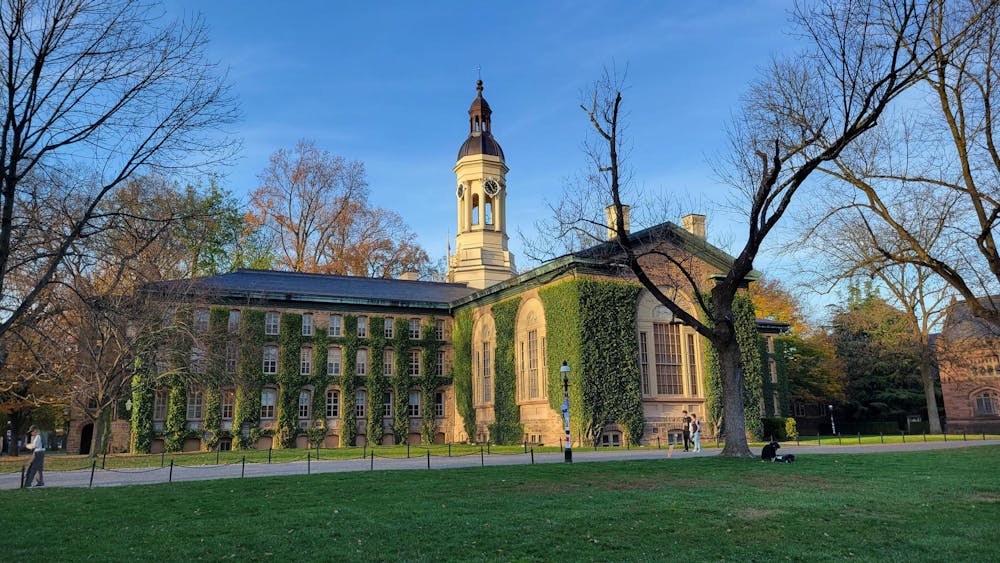The University will cover the cost of the Block 32 plan for all students next year, effectively eliminating the controversial new requirement for students in eating clubs and co-ops to pay for a dining plan. Independent students, however, will still be required to purchase a meal plan.
The announcement was made by University administrators at the Undergraduate Student Government (USG) Senate meeting on Sunday after weeks of sharp backlash from students and alumni across the dining spectrum.
The announcement added that students not affiliated with an eating club or co-op will be required to purchase at minimum a Block 128 meal plan, a change from the previously proposed Block 160 plan. This plan, in addition to the 32 meals provided by the University, total in 160 meals per semester. The Block 128 plan will cost $3,600, a $900 reduction from the proposed block 160 plan.
Students on financial aid will effectively see no change from the Sept. 29 policy. Under that policy, the University would increase financial aid by $900 to compensate for the cost of the Block 32 plan. There will be no such increase under the modified policy.
The change follows weeks of student and alumni criticism over the proposed dining plan. Independent students have voiced concern over the elimination of a separate room draw process for kitchen-equipped dorms like Spelman Hall. The Inter Club Council (ICC) and co-op members have criticized the potential financial burdens on students, limited capacity issues, and the University’s decision to proceed without consulting students. Alumni joined the effort, too, with the Graduate Interclub Council (GICC) flying a plane over the Oct. 25 homecoming football game for its “Don’t Harvard Our Princeton” campaign protesting the change for eating club and co-op classes.
University Services is still determining how Spelman Hall, which is equipped with in-room kitchens for independent students, will fit into the updated room draw process. The University aims to make a decision by Thanksgiving Chad Klaus, Vice President for University Services, said at the meeting.
“We really want that to be a student-led decision as to how we will allocate Spelman going forward,” he said, noting that USG was “very critical” in making the change.
Under the new policy, Block 32 meals can be used during fall or spring breaks as well as at Late Meal. Unused meals will roll over from week to week, allowing students to use swipes at their discretion — a change from the two dining hall swiped all upperclassmen receive per week, which expire at the end of each week and cannot be used during breaks. The change stems from a policy memorandum presented by Anuj Krishnan ’27, University Student Life Committee Chair, on behalf of USG at an Apr. 21 meeting with University Services.

“We are grateful to USG for identifying this option in their memorandum and for articulating why it was important to students that the meals be available in block form,” Klaus said at the Senate meeting. At the Sunday meeting, he also thanked USG representatives for their engagement in a meeting that took place on Friday, Oct. 31 between USG members and University administrators.
“We’re incredibly grateful to the university administration for being committed to taking in student engagement and utilizing that moving forward,” USG Vice President Aishwarya Swamidurai ’26 said. “We’ll continue to be persistent about matters that are important to students, including Spelman draw and so we’ll keep you guys looped in on that conversation.”
The University first announced its housing and dining restructuring on Sept. 29, citing a desire to address upperclassmen student isolation and foster a greater sense of belonging. This plan followed recommendations from the Huron report released last spring, which assessed the state of campus dining.
Members of the ICC did not respond to requests for comment in time for publication. On its website, the GICC claimed victory, writing that “existential crisis for Princeton’s eating clubs and co-ops has been averted due to alumni and student support.”

“This outcome shows the power of our community when we stand together. Princeton’s eating clubs and co-ops will continue to be the vibrant, student-led institutions that have defined the undergraduate experience for generations,” the GICC said.
Kian Petlin is a staff News writer for the ‘Prince.’ He is from San Francisco, Calif. and typically covers campus events and student life.
Gray Collins is a News contributor for the ‘Prince.’ He is from Villanova, Penn. and can be reached at gc7410@princeton.edu.
Please send any corrections to corrections[at]dailyprincetonian.com.








